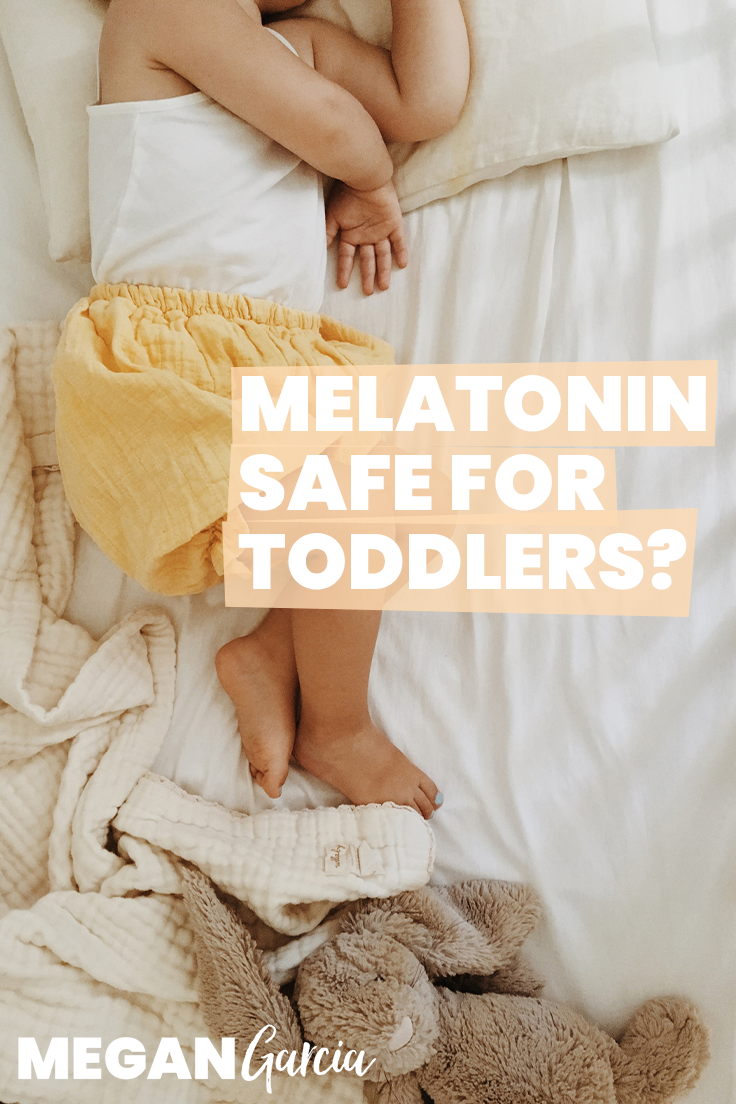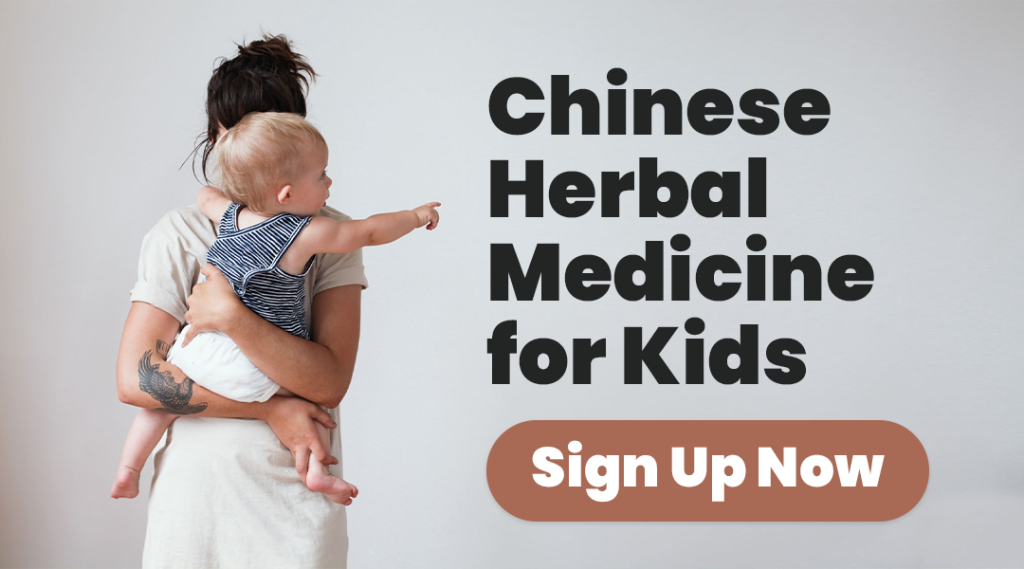 In response to sleepless nights or even unconsolable night terrors, you might wonder if melatonin for toddlers is safe. Your pediatrician may even recommend it.
In response to sleepless nights or even unconsolable night terrors, you might wonder if melatonin for toddlers is safe. Your pediatrician may even recommend it.
But there’s a big difference between using melatonin to get through some jet lag and relying on it to help your little one sleep.
What’s more, melatonin is the leading cause of overdose in emergency departments for kids 0-6 years old.
You also have better options.
What is melatonin?
Melatonin is a mighty hormone and it has a big responsibility. It takes its cues from the surrounding light and gets you to sleep.
Often called “the hormone of darkness,” light inhibits the body from making melatonin and secreting it. Which means levels naturally shift with the seasons. It also means that synthetic light from lightbulbs or screens can interfere with natural melatonin levels.
Besides making you sleepy, melatonin also acts as an antioxidant, anti-inflammatory, and free radical scavenger.
What’s more, you can find melatonin receptors throughout the body. There’s even evidence that every healthy cell makes melatonin. This helps to explain the broad reach that melatonin has, affecting systems like:
- Circadian rhythm
- Sleep-wake cycles
- Sexual maturation
- Aging
- Immune health and the development of cancer
- Cardiovascular system and signs of metabolic syndrome
But wait, there’s more.
Melatonin production relies on tryptophan. Because tryptophan is an essential amino, supply in the body is limited. So diet matters.
Good sources of tryptophan include:
- Spirulina
- Eggs
- Dairy
- Meat
The problem with over-the-counter melatonin for toddlers
In the United States, you don’t need a prescription for melatonin. But outside the US, many countries ban over-the-counter melatonin, including:
- United Kingdom
- European Union
- Japan
- Australia
- Canada
And it looks like there are a couple of good reasons for this.
For starters, there are strength and purity issues. Melatonin levels in an over-the-counter supplement may not actually reflect what’s on the label.
In 2017 researchers at the University of Guelph in Guelph, Ontario, Canada looked at 31 different melatonin supplements. Surprisingly, the melatonin levels in these supplements were anywhere less than 83% to over 478% of what was claimed on the label.
Worse, the biggest offenders were chewable melatonin tablets.
Chewable melatonin is most likely to be offered to small humans. These contained almost 9 mg of melatonin per dose. Whereas the label claimed one dose had only 1.5 mg. And levels of melatonin varied widely between lots of the same brand.
On top of this, 8 of the 30 melatonin supplements tested also contained serotonin that wasn’t on the label.
And while you can find natural serotonin in herbs like chamomile, some of the melatonin supplements tested didn’t have added herbs. But they still showed significant levels of serotonin.
In short, there’s a good chance that the label of your melatonin supplement may not reflect what you’re actually getting.
⚠️ In the United States, melatonin in littles age 0-6 years old is the leading cause of overdose in emergency departments.
Yes.
Sleep is sacred. And many parents are doing their best to survive on sleep fragments, a morning coffee, and 3 pm matcha (I’m cacao girlie myself)…
But, we have options.
A couple of basic, sensible options. And then a little TCM (traditional Chinese medicine) magic that generally gives whole body support for restful Zzzz’s.
Top three ways to support baby sleep that don’t involve melatonin
- Good sleep hygiene
- Play before bedtime
- Traditional Chinese botanicals to support sleep
1. Double check your little one’s sleep hygiene
Sleep hygiene equates to the steps you take to get a good night’s rest.
These steps are basic. And they’re the “low hanging fruit” that you want to tackle first before considering melatonin or other natural sleep aid for kids.
Below, a few sleep hygiene tips for the whole family:
- Start the morning early and avoid sleeping in
- Prioritize daily physical play and outdoor time
- If naps are part of the picture, make them happen earlier rather than later in the afternoon – or skip them altogether
- Turn off screens and dim bright lights 1 to 2 hours before intended bedtime
- Maintain a consistent bedtime flow; for example: bathtime, brush teeth, storytime, and lights out
- Consider a later bedtime
There’s some interesting evidence suggesting that melatonin levels begin to rise in 3-year-olds at around 7:40 pm.
Also known as “dim light melatonin onset,” this isn’t when your kiddo needs to be put to bed.
On the contrary, if bedtime is too close to melatonin onset, chances are you’re going to have more trouble with sleep. This might look like calling out to parents, asking for another drink of water, tantrums, or refusal to sleep.
As long as you’re checking all the boxes of good sleep hygiene, a slightly later bedtime can work to your advantage.
And if your toddler is still struggling to fall asleep, you may also want to consider getting rid of naps.
2. Be sure to play
It may seem counter-intuitive, but play – even rough, physical play – can release tension and wound-up emotions that have accumulated throughout the day. Especially if your little one didn’t have a chance to spend plenty of time outdoors.
Known as “play listening” in the Hand-in-Hand parenting framework, this type of play before bedtime can also reinforce the connection you share with your little one.
It’s worth noting that you would want to incorporate other tools, like “stay listening” and firm, compassionate boundaries to help build sleep confidence.
3. Natural sleep aid for kids
When I think about natural sleep aid for kids, my mind goes straight to traditional Chinese medicine (TCM). It’s what I’m trained in. And it’s what I understand.
Here’s what you need to know…
👉 TCM looks at the whole body. So what works depends on “differential diagnosis” and that means no cookie-cutter solutions.
But if your approach to sleep hygiene and sleep confidence is solid, then there are a few broad directions you could go from a TCM perspective. And to figure out what’s best for your child, you would want to work with an acupuncturist who might look at:
- Digestion
- Anxiety, agitation, and behavior
- Allergies and eczema
What’s interesting is that whether we’re talking about traditional Chinese medicine or current research in the medical field, there’s a HUGE relationship between sleep, behavior, digestion, and immune balance.
Complete overlap. Wow, right?
This means that it’s possible to address a constellation of problems by simply working with how poor sleep presents itself in the TCM framework. But it requires fine tuning.
With that said, there’s one formula called Suan Zao Ren Tang (SZRT) that has calming effect, helping to clear “heat” (read: inflammation and what may or may come along with this, such as mild disruption of gut bacteria) and reduce restlessness.
SZRT is well known for its ability to address insomnia.
The star herb in this formula and for insomnia is “suan zao ren” or Jujube Seed, known for its ability to calm the nervous system. Jujube seed contains jujubosides, which surprisingly has different effects on daytime versus nighttime sleep.
In TCM pediatrics, there are several versions of SZRT. For example…
Little Fishes Sleep Peace contains additional herbs to clear heat. What’s more it also supports gut health and nourishes blood, which is one area that toddlers tend to need extra support.
✅ Better sleep
✅ Less nighttime grumpiness
✅ More container for sensory overload
Blue Poppy’s Tender Teeth has added an herb called White Peony, or “bai shao” which works with Licorice Root to ease pain and spasms. Which is why it works well as a teething formula.
✅ Better sleep
✅ Reduced inflammation
✅ Less teething pain
FAQ: Are TCM sleep herbs okay for long term use?
In short, if you’re using the same formula for a long period of time, it’s a good idea to stop all herbs after eight weeks in order to avoid formula fatigue.
What’s more, the point of TCM botanicals is to reestablish balance. So you want to check in with the body and see where things are at as seasons change (yes, summertime heat can affect sleep) and as your child’s body changes.
Often, you will find the herbs are no longer necessary.
Or, if the sleep issue is constitutional, the same problem may pop up from time to time. In which case, it may be time to revisit herbs.
In all cases, the most accurate approach will be with the help of your acupuncturist.
Before considering melatonin for toddlers
Poor toddler or baby sleep can be part of a network of problems that are best addressed by caring for the whole body. What’s more, from a TCM perspective, continually disrupted sleep can create its own issues later on.
So you really want to nourish the root.
This means preventative medicine. And it means going a step beyond patching up sleep troubles and addressing the deeper issue.
Your kiddo’s sleep issues may be 100% about sleep hygiene. Or, there may be something else going on.
Traditional Chinese medicine offers melatonin-free options that help to restore overall balance, which includes sleep.
We’re talking whole body solutions.
Bottom line: If your little one’s disrupted sleep patterns are getting in the way of a good night’s rest, go ahead and explore solutions beyond melatonin.
And make an acupuncturist friend or two. It’s good medicine 😉

So grateful I stumbled across this article. We have always been cautious about over use of melatonin for our son, but I think after reading this we will not be using it at all anymore. My husband is usually against it anyway. I had asked our ND about the effects of melatonin and she said that there was no evidence and to use freely. We didn’t thankfully and I’m so glad. The most concerning is the possible connection of onset puberty!
Glad you found it useful! Highly recommend TCM herbal therapy. Very effective and corrects the root of what may possibly be going on 💗